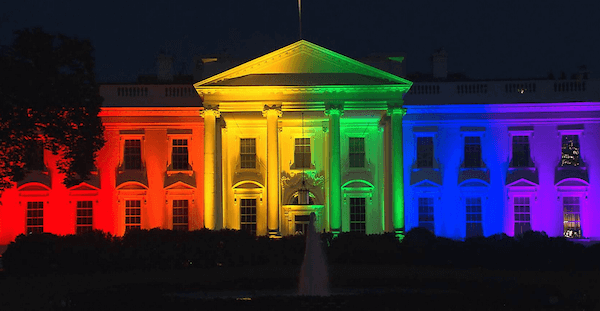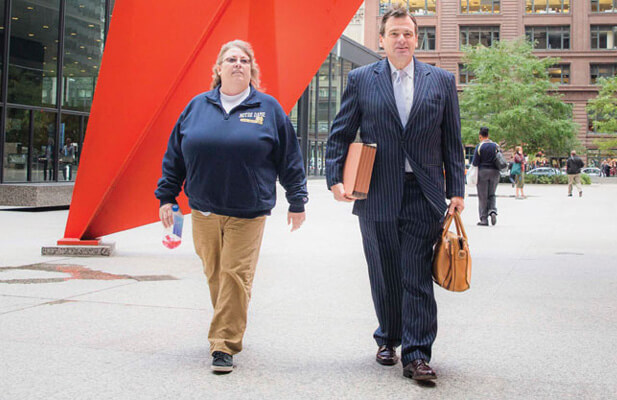Tamara Lusardi.
The Equal Employment Opportunity Commission, the agency charged with enforcement of the federal ban on sex discrimination in employment, ruled on April 1 that a transgender woman employed in a civilian position by the US Department of the Army is entitled to use restroom facilities consistent with her gender identity. The Army unit the woman worked for had objected to her doing so before she underwent sex-reassignment surgery.
Though the EEOC previously ruled that refusal to employ somebody because of their gender identity was a form of sex discrimination in violation of federal law, this was its first pronouncement on one of the great looming issues in transgender workplace rights: restroom access.
Tamara Lusardi was hired as a male-identified civilian employee in 2004 to work at the Army Aviation and Missile Research Development and Engineering Center in Huntsville, Alabama. The case decided by the EEOC involved events that took place from late 2010 through mid-2011, immediately after she obtained a legal name change from an Alabama court.
Federal equal employment agency finds sex-reassignment surgery pre-condition impermissible
Lusardi first discussed her gender identity issues with a senior AMRDEC official in 2007 and began the process of transitioning three years later. In October 2010, after obtaining her legal name change, she changed her name on her employment records and two weeks later met with senior supervisors about how she would present herself on the job to conform with her gender identity. The issue of restroom use came up and an agreement of sorts, memorialized in writing, was reached, under which she would use a private or “executive” bathroom until she had undergone sex-reassignment surgery.
Lusardi generally adhered to that agreement, but there were a few occasions when that restroom was in use or out of order, so she used the restroom designated for women, which turned into an issue with a supervisor. A different supervisor persisted in referring to her with masculine pronouns or calling her “sir,” using her former first name, and “smirking” and “giggling” in front of others while stating, “What is this, [her former male name] or Tamara”?
In September 2011, Lusardi spoke with an equal employment opportunity counselor within her agency about these issues, and the following March she filed a formal complaint alleging disparate treatment and a hostile workplace environment. On September 5, 2013, the agency issued a final decision concluding she had failed to show a sex discrimination violation. Lusardi promptly appealed to the EEOC.
Reversing the agency’s decision, the EEOC found that the disparate treatment in restroom access was a direct violation of the ban on sex discrimination. Building on its earlier employment discrimination decision, it held that a transgender woman presenting as a woman is entitled to be treated by her employer as a woman. This includes access to women’s facilities, regardless of whether the individual has had surgery.
“This case represents well the peril of conditioning access to facilities on any medical procedure,” the EEOC wrote. “Nothing in Title VII [of the 1964 Civil Rights Act] makes any medical procedure a prerequisite for equal opportunity (for transgender individuals or anyone else). An agency may not condition access to facilities — or to other terms, conditions, or privileges of employment — on the completion of certain medical steps that the agency itself has unilaterally determined will somehow prove the bona fides of the individual’s gender identity.”
The EEOC also rejected the agency’s findings on the harassment claim, concluding that the insults to Lusardi were intentional. The Commission ordered the agency to conduct an investigation into compensatory damages to which Lusardi might be entitled, mainly concerning the hostile workplace environment. It was also ordered to take concrete steps to educate its employees and supervisors on their non-discrimination obligations.
A key test now is whether the federal courts will fall in line with this ruling, which contradicts older findings from courts around the nation.
Lusardi was represented by the San Francisco-based Transgender Law Center, with pro bono assistance from Lieff, Cabraser, Heimann & Bernstein.



































